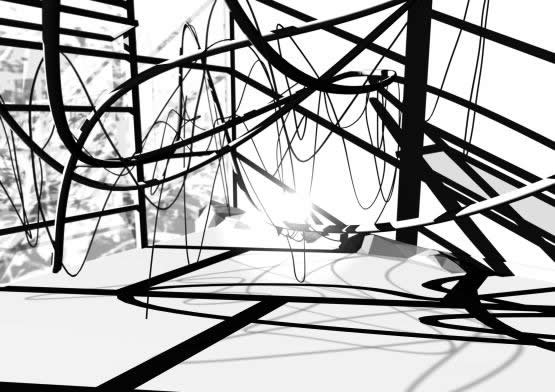It is widely held that the cycling documentaries of Jorgen Leth are among the best ever made. Leth (who also commentates on the Tour de France for Danish television) made three cycling films in the 1970's: The Impossible Hour, Stars and Watercarriers and A Sunday In Hell.
Stars and Watercarriers follows the 1973 Giro d'Italia, as Eddy Merckx battles for victory in this Grand Tour with the lies of Felice Gimondi and Ole Ritter. The film not only depicts these contenders, but also the work of their domestiques (literally from the French, 'servants'), team members employed to aid their leader.
(Stars and Watercarriers is in 9 parts on YouTube)
The Impossible Hour documents Ole Ritter's three attempts at the World Hour Record, the ultimate test against the clock.
(The Impossible Hour is in 5 parts on YouTube)
Leth's masterpiece though is A Sunday In Hell, which follows the 1976 edition of Paris-Roubaix, the one-day classic race and battleground of cycling's great strongmen. The race is known for its cobbled sections (around one fifth of the 260km) which often cake the riders in dust or mud, depending on the weather. It is this that make Roubaix the highpoint in the cycling calendar for many fans, myself included.
(Sadly, A Sunday In Hell is not on YouTube, further, it is difficult to get hold of in general in the UK)
Leth recognises the aesthetic quality of bike racing, that hyperediting and showy camerawork can subtract from this, like in recent, flashier films such as Overcoming and Hell On Wheels (though some would say that cycle sport itself had a greater aesthetic quality then than it does now). Further, Leth eschews pace in favour of a clearer narrative and the endeavours take on a epic, mythic quality.
Leth most recently came to semi-prominence when he was tasked by the 'Dennis Bergkamp of cinema', provocateur Lars Von Trier to re-make his 1967 experimental short, The Perfect Human, five times over in Von Trier's The Five Obstructions. The last film was created by Von Trier himself (with Leth forced to read Von Trier's narration and take full directorial credit), and it's testament to Leth's ability that this version is inferior to those made by Leth himself.

No comments:
Post a Comment